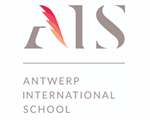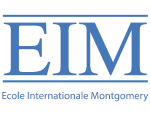Belgium’s education system is usually ranked within the top 20s in the world by the OECD. In and around Brussels, there are a high number of quality state, private and international schools all catering to the very cosmopolitan population.
When choosing a school, these are some of the major factors to take into account:
- Age of the child; the stage of their education is a major factor
- Do they speak French or Dutch/Flemish
- Availability and quality of local state or private schools
- Planned length of stay in the country
- The facilities the school has to offer
Local schooling system
There is a lot of information about the Belgium school system online, including a directory of schools at the government site (in French). The qualifications in secondary education are normally only Belgian diplomas.
The most obvious advantages of using the local system are cost and exposure to the local language and culture. The age of your child is a key factor in this choice - the younger they are, the more likely they are to adapt quickly and succeed.
Other advantages are a greater chance of getting a school near your home or work (although some parents may prefer to choose the school before their home) and the opportunity to meet parents and get more exposure to local society.
International schools
They usually run English or bilingual (English/French) programmes. Different curricula are available and you should consider where your child might be going for further education when making choices. Certain qualifications may make entry into university easier (for instance the International Baccalaureate).
Probably the most attractive aspect of an international school is exposing your children to a wide variety of cultures from around the globe, enriching their learning and understanding of the world through constant interaction with their classmates and friends. St. John`s International School in Brussels, for example, has students from over 55 countries.
Summary
- The younger the child (if they have no French or Dutch), the better the experience would be in a state school - they adapt faster and are likely to become properly fluent in the language.
- Older children might have difficulty adapting to a secondary curriculum in French or Dutch unless they have some proficiency.
- For many expats, having your children in a more diverse environment is preferable and also offers more opportunities to get involved with the school and meet other parents.
- If you are probably not going to be in Brussels on an indefinite basis, an international school is likely to offer a better chance of educational continuity.
For older children, it is important to talk to them and get their opinion. You should also try to get to see schools in advance if possible and get a first-hand view of how they work and the quality of education on offer.




